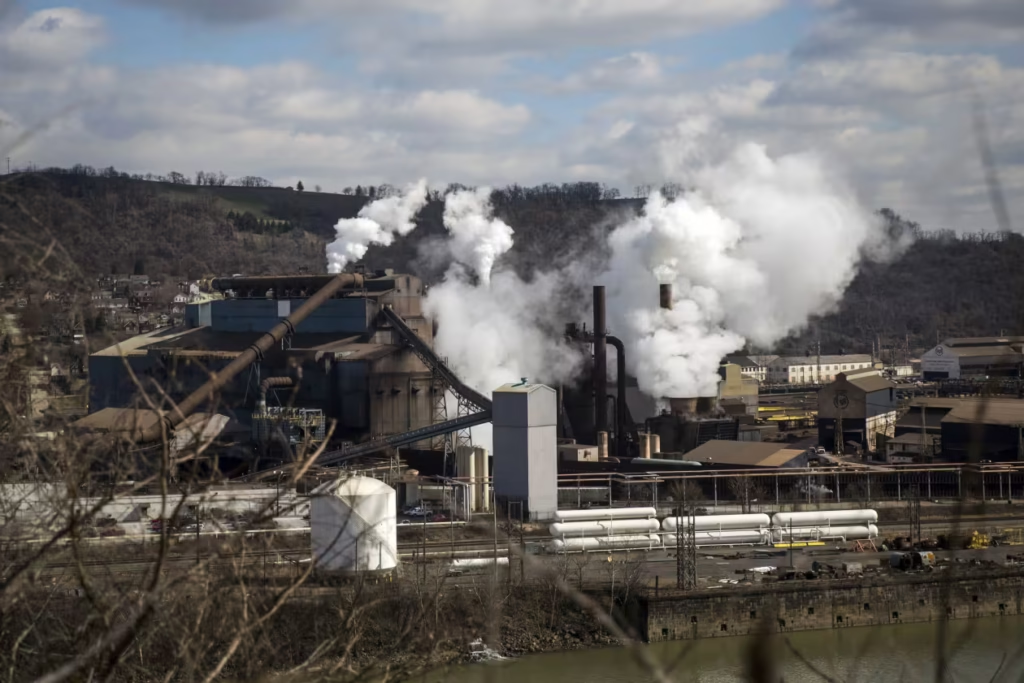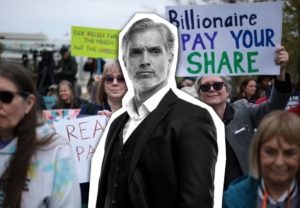President Donald Trump will address a rally in Pittsburgh on Friday to formally announce a partnership between the U.S. steelmaker and Japan’s Nippon Steel Corp., bringing the story of U.S. Steel Corp. one step closer to its conclusion.
According to reports, the U.S. government will hold a special class of shares, known as “golden shares,” as part of the “planned partnership,” which Trump originally discussed on Truth Social a week ago. This will give the government more control over future U.S. Steel (X) operations. No other information about the agreement has surfaced.
In actuality, a golden share is any kind of special or dual-class share structure that gives a bloc additional voting power. However, the White House’s intentions appear to be more focused on the two steelmakers’ ongoing attempts to reach a deal.
In December 2023, Nippon Steel (JP:5401) (NPSCY) first offered to pay $14 billion to acquire the struggling Pittsburgh-based U.S. Steel; however, the Biden administration thwarted the agreement on the grounds of national security. Trump, who was running for president at the time, opposed the agreement as well.
Brett House, a management professor at Columbia University, called it “deeply odd” that a White House that is dedicated to free markets and more foreign investment in the United States seems to be interfering with the company’s operations.
“This move is inconsistent with the White House desire to attract foreign direct investment to the U.S.,” he stated.
House expressed fear that any agreement reached in the United States might include the U.S. government in some way, which would discourage international investment.
He said that it’s probably “an attempt to have things two ways,” or to restrict foreign direct investment while pretending they’re not. “It’s hard to say what it does for the attractiveness of this deal.”
Chester Spatt, a former chief economist for the U.S. Securities and Exchange Commission and a professor of finance at Carnegie Mellon University, stated that one of the main questions is whether the power-brokering structure will enable Nippon Steel to shut down underperforming steel plants.
“I don’t know that the national security case is necessarily compelling in this case,” he stated. “Japan is one of our strongest allies.”
“Recognizing that the alternative was no deal,” Spatt stated, Nippon Steel has apparently accepted the arrangement.
Investors in U.S. Steel appear to have loved the deal: following Trump’s post last Friday regarding the alliance, the company’s shares surged more than 20%, and they have since climbed more than 2% this week, outpacing the overall equity market.
Trump claimed that the partnership will generate “at least” 70,000 jobs and that the company’s headquarters would stay in Pittsburgh.
850,000 people in manufacturing and other industries are represented by the United Steelworkers, which stated this week that the collaboration announcement “continues to raise more questions than answers.”
According to the USW, Nippon Steel continues to insist that it would only make investments in American plants if it were the sole owner of U.S. Steel. Additionally, the union noted there is no information on how much of the $14 billion investment would go to union-represented locations or how much would be used for capital projects rather than regular upkeep and repairs.
U.S. Steel, for its part, is keen to start the transaction. The business thanked the president in a news release following Trump’s declaration last Friday for his “leadership and personal attention to the futures of thousands of steelworkers and our iconic company.”
“U. S. Steel will remain American, and we will grow bigger and stronger through a partnership with Nippon Steel that brings massive investment, new technologies and thousands of jobs over the next four years,” read the statement.





